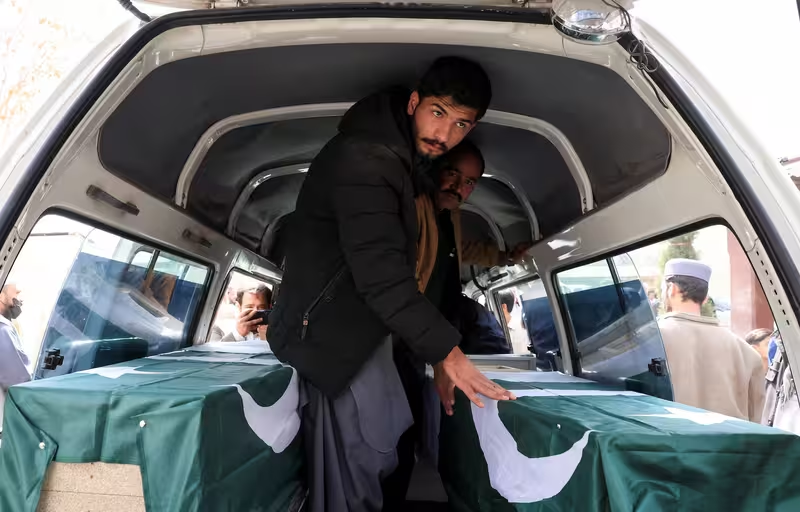
On March 11, 2025, the Balochistan Liberation Army attacked a passenger train called the Jafar Express. According to security officials, the train passed through a tunnel while the attackers blew up the railroad track. At the same time, they exchanged fire with the train’s security guards, even using women and children as human shields. Additionally, the attackers are said to have taken more than 450 hostages. While 339 hostages have been rescued so far, the fate of the other passengers remains unknown. The train traveled through the provincial capital Quetta to Peshawar when it came under attack in the Bolan district: an incredibly rugged, mountainous terrain and a popular route for traders, invaders, and nomadic tribes between India and Asia. This made access to the district incredibly difficult, and Bolan district government spokesman Shahid Rind declared the attack as “an act of terrorism.”
The separatist Baloch Liberation Army (BLA) claimed responsibility for the attack and said that hostages included members of security forces who had been on board. Then in a statement by BLA spokesman Jeeyand Baloch, the group declared that they were ready to free passengers if the government agreed to release the group’s jailed militants. Currently, the BLA has conducted more than 150 attacks this year alone, significantly expanding the scale and threat of its operations. The BLA is a secessionist group in Balochistan that aims to separate the province from Pakistan after Balochistan’s annexation in 1948, six months after its partition from India. However, the region remains Pakistan’s poorest region despite being rich in natural resources and generating revenue for the Pakistani government. Many Baloch nationalists claim that the Pakistani government has neglected their people while exploiting the land for resources, which has created many separatist movements and armed rebellions such as the BLA. At first, the BLA focused on advocating for the investment of Balochistan’s resources towards the people instead of the federal government. However, it quickly escalated to calls for complete independence through violence against civilians, train attacks, and murdering government officials. In recent years, the group has preferred to show its “power and capabilities in the media,” according to a former leader of the Baloch Students Organization. So far, the Pakistani government has not responded to the BLA’s offer to free the hostages in exchange for freeing their jailed militants, but the government has denied such offers in the past. Although the BLA has repeatedly attacked trains in the past, this is the first time they have managed to hijack one – foreshadowing a dark future.
Things took a turn for the worse when the military reported its “confirmed intelligence” that the assault was “orchestrated and directed by terrorist ring leaders operating from Afghanistan.” The Pakistani military claimed that the BLA militants were in direct communication with Afghanistan during the event. However, Afghan foreign ministry spokesman Abdul Balkhi rejected the accusations, stating that the train attack deeply saddened Afghanistan. Pakistani authorities said that those killed by them in the train were members of the Pakistani Taliban, an ally of the Taliban in Afghanistan. Next, on Friday, March 13, Pakistan accused India of sponsoring the attackers, with no evidence to back the accusation. Like Afghanistan, India denied these accusations and “rejected the baseless allegations made by Pakistan.”
After the attack, Pakistan suspended all train services to and from Balochistan, since repairs on the train tracks have not yet begun. Many members of the U.N. denounced the event, “condemning in the strongest terms the heinous and cowardly terrorist attack.” Members of the Security Council emphasized the need to hold the BLA accountable and bring justice to the victims.
Written by Claire Liu


